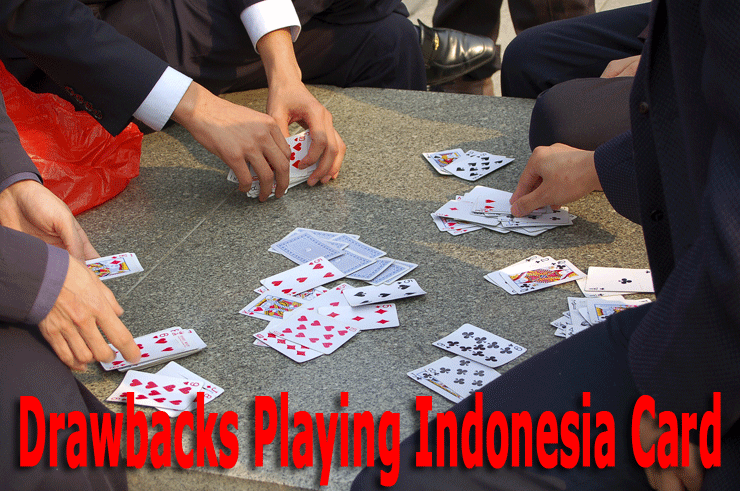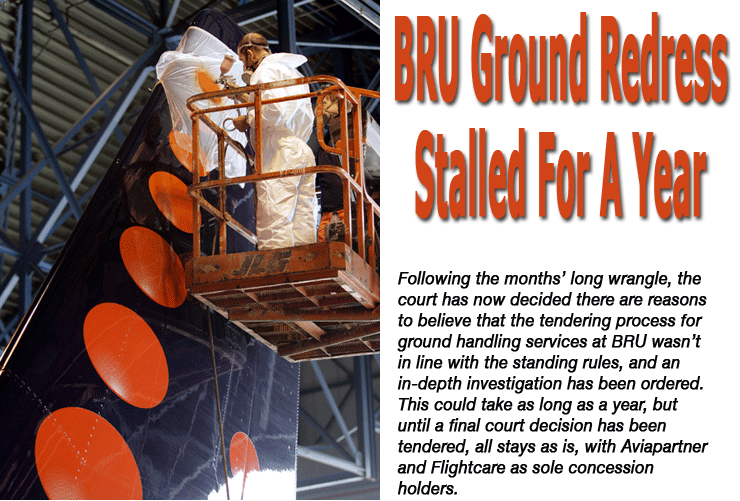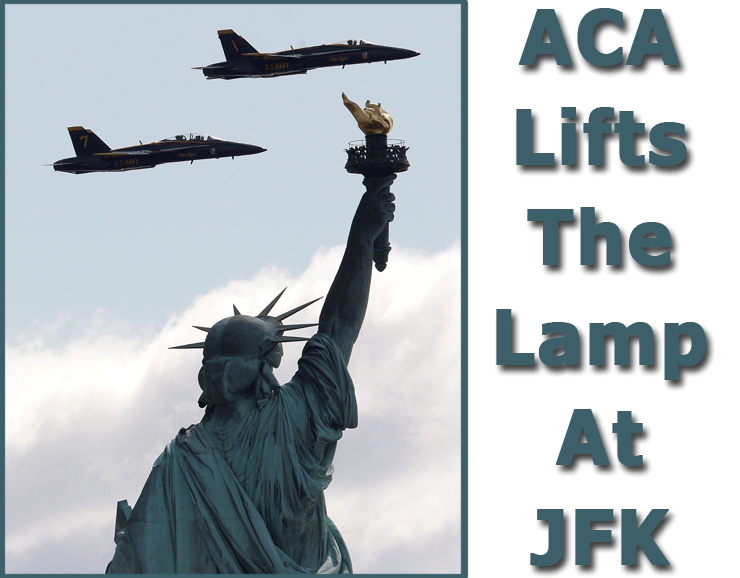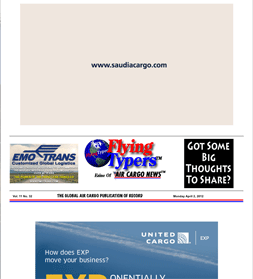
Many see Indonesia’s domestic
market as the world’s last great aviation frontier.
The world’s fourth largest country by population is
made up of over 17,000 islands, fertile territory for both
domestic and international services.
Its economic growth and foreign
direct investment forecasts are more than healthy and it boasts
a stable democracy, which, while by no means perfect, remains
something of a rarity in Asia. This enticing mix of political
sobriety and giddy growth potential is attracting serious
investment in aircraft by Indonesian operators, which have
replaced their Chinese peers as the headline makers at major
aviation shows in recent months.
But amid all the optimism, a
sobering story came to FlyingTypers’ attention
from the shipping markets. It is worth re-telling here, before
we all get too carried away by Indonesia’s blue-sky
opportunities.
One of the country’s financial
pillars is its huge reserve of natural resources. Apart from
coal, gold, and palm oil, an almost forgotten export is nickel
ore. Each year, shipments of this cargo loaded in Indonesia
account for a miniscule proportion of trade carried by the
global fleet of some 8,000-plus bulk carriers. However, this
one trade lane from Indonesia to China has accounted for the
loss of four vessels and 66 lives in the last 18 months, turning
on its head the downward trend of seafarer deaths in bulk
carriers of the last three decades.
We hear about the dangers posed
by pirates almost constantly in media. So it is worth noting
that just 16 seafarers lost their lives due to piracy across
all ship types over 2010 and 2011, according to figures from
watchdog International Maritime Bureau.
The suspected reason for these
66 deaths and 4 vessel losses is that nickel ore can liquefy
if loading is not supervised correctly. In effect, this turns
the cargo into sludge once the ship sails. Simple tests of
moisture content before loading can prevent liquefaction and
there are more than adequate—mandatory—regulations
available governing and guiding the safe handling of nickel
ore. However, the loss of life continues on vessels that have
recently loaded in Indonesia.
The reason many shipping bodies
believe this is happening is because Indonesia’s central
authorities, in tandem with the shippers who have most to
gain by a sailing not being delayed, are refusing to allow
independent surveyors to measure the moisture content at load
ports.
Indonesia’s maritime authority
and transportation ministry have given no justification or
explanation for its failure to stop these deaths. Indeed,
Indonesia’s authorities refuse to answer any queries
on the loss of the vessels. Shipping organizations privately
admit they are afraid of pushing Indonesia’s government
too strongly for fear of making it even less inclined to improve
safety at ports.
The upshot is that nickel ore
continues to be loaded unsafely, the shipping equivalent of
flying an aircraft with a ticking bomb onboard.
This failure to act by Indonesia’s
authorities in the face of a clear and present danger is worth
noting—the same criticism has previously been applied
to the country’s aviation industry.
So amid the hoopla of that recent
Singapore Air Show where Lion Air, for example, announced
that it had signed a $21.7 billion deal with Boeing for 230
short-haul 737 jets, the biggest commercial order in Boeing’s
history, FlyingTypers stepped back and considered
what the consequences of more planes in the sky would be in
a country that likes to live so dangerously.
As mentioned at the top, Tony
Tyler, president director of IATA, said during his visit to
Indonesia in September that the country could be the sixth-fastest
growing market for international passengers.
In 2014, Indonesia will rank
as the ninth-largest domestic market and among the top 10
for international freight, according to Tyler.
But just 7,000 pilots man Indonesia’s
57 airlines, which even the discredited transportation ministry
(the same transport ministry that has failed to act over the
nickel ore deaths) admits is not enough.
Indonesia has long had one of
the worst accident rates in Asia.
Back in 2007, the U.S. downgraded
the safety status of Indonesia's civil-aviation directorate,
and the European Union put all the country's carriers on a
list of banned airlines.
The EU has now removed Garuda
and some other carriers from its danger list after the carriers
improved their safety procedures, but concerns remain, not
least because the government’s safety officials are
not known for rigor, the airports themselves are under-maintained,
and many are already at operating over-capacity.
Indonesia is also one of the world’s worst performers
in global corruption indices, a fact that allows safety procedures
to be bypassed with some ease in all walks of life.
IATA, which has frequently warned
Indonesia about its safety record, said the country had 33
plane accidents between 2005 and 2010 and accounted for 1.4
percent of global traffic but 4 percent of accidents in 2010.
Garuda is the only Indonesian carrier on IATA’s safety
audit list of 372 international airlines.
Lion Air, which has had frequent
safety incidents including overshot runways and hard landings,
recently saw three of its pilots arrested for testing positive
for illegal drugs. One of its planes crashed in 2004 causing
the death of 25 people.
Mandala Airlines, like Lion
Air, is also expanding to cash in on anticipated growth. Mandala
is owned by Tiger Airways, with Singapore Airlines owning
a 33 percent stake. Last year Tiger was banned from flying
in Australia for five weeks by that country’s aviation
regulator due to safety issues. Would Indonesian regulators
be so stringent under the same circumstances?
Another airline that has been
eager to announce its intent to grow is Merpati, whose general
manager was arrested on graft charges in late 2011. One of
Merpati’s MA-60 aircraft crashed into the sea last year
off the coast of Kaimana, West Papua, Indonesia, in heavy
rain. All 21 passengers and four crew onboard were killed.
The loss prompted a major re-inspection of all MA60s in operation
in Indonesia after an investigation revealed that the state-owned
carrier’s purchase of the aircraft may have violated
federal legal procedures. Since then the carrier has ordered
40 Chinese ARJ21-700s and 11 Boeing B737-400s.
SkyKing
|







 Last
Thursday in New York, the JFK Air Cargo Association held their
13th Annual Air Cargo Day with displays and an open industry
meeting and luncheon that hosted over 300 people, all in an
effort to move the marble toward understanding issues from
cargo screening to dealing with new technologies.
Last
Thursday in New York, the JFK Air Cargo Association held their
13th Annual Air Cargo Day with displays and an open industry
meeting and luncheon that hosted over 300 people, all in an
effort to move the marble toward understanding issues from
cargo screening to dealing with new technologies.
 RE:
RE:


